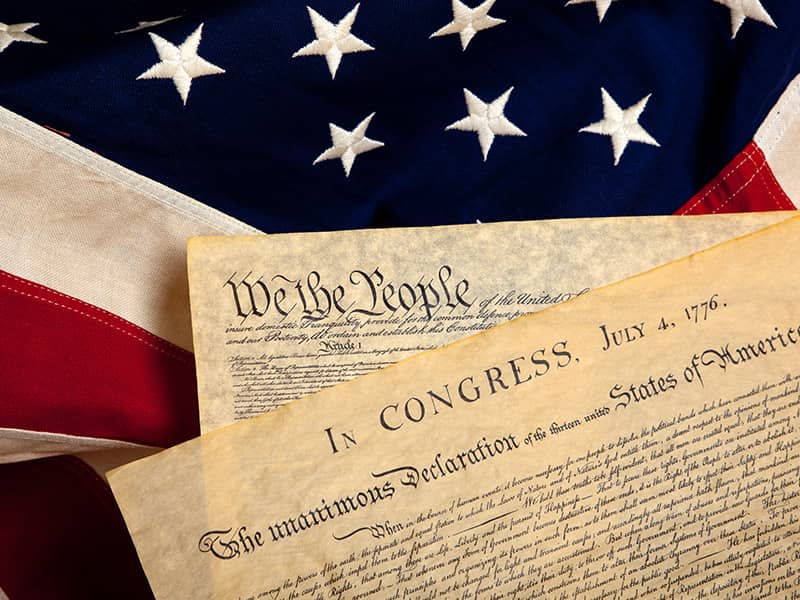The Washington Post recently asked a group of writers and clergy to respond to this question: "Some politically conservative Christians say that America is "a Christian nation," and at this time of year, with the country saturated with Christmas imagery, it can seem that they are right. Are they? Is America a "Christian nation"? Should it be?"
It's not just "some politically conservative Christians" who say this is a "Christian nation." A recent survey from the Pew Forum on Religion found 67percent of Americans also believe this is a "Christian nation." So did 63 percent of Democrats. This is not the view of a group of extremists but rather of the majority of the population.
I happen to believe it's wrong but when a belief is that commonly held it's worth taking a look at the evidence with an open mind.
Let's look at the most commonly cited evidence:
Most Americans are Christians – This is true. With all the appropriate emphasis on pluralism and tolerance, it's easy to forget how demographically Christian America is. Polls show consistently that more than 80 percent of Americans are Christian. There are six times as many Baptists alone as there are Jews, Muslims, Buddhists and Hindus combined.
But while "Christian nation" advocates are right about the math, it's nonetheless a weak point. If the term "Christian America" derives merely from demographics then we are also a female nation and a nation of brunettes. And when people of color become the majority, we would then become a brown and black Nation. These are meaningless appellations because, fortunately, this nation does not distribute its rights according to group size but rather fundamental principles.
The new world was founded as a Christian enclave– That's true, too. King James' charter for Virginia in 1606 officially declared that it was the colonists' mission to promote the "Christian religion" to those who "live in darkness and miserable ignorance of the true knowledge and worship of God" (i.e. the Native Americans). For the next 150 or so years, almost all the colonies officially endorsed or encouraged Christianity. What's often left unmentioned, though, is that our country's founders thought these 'Christian America' experiments worked so badly that they rebelled against that approach and created a secular Constitution.
The country was founded on "Judeo-Christian values" – True again. Most of the founders were deeply schooled in the Bible and Christian ethics and these values did indeed pervade lawmaking at the local and national level – not only in prohibitions on murder and bearing false witness, but also in the granting of human rights, which stemmed in part from the biblical view that God created men in His own image. So conservatives are not wrong about this either.
What they leave it out is that Judeo-Christian values were among many others that influenced the founding documents. For instance, the basic structure of government came from Rome, yet we don't speak much about the nation's tradition of "pagan values," or say that therefore we should provide tax credits to study Zeus.
The founding fathers were religious - Any statement that says "the founding fathers" were anything in particular should be viewed skeptically since they disagreed with each other on many issues. [Click here for a quiz testing misconceptions about the Founding Fathers and faith] I will say this: People like Jefferson and Franklin were more the exception than the rule among the crafters of the Constitution and Declaration of Independence, many of whom were quite religious.
But this leads to the biggest non-starter of all: that their religiosity meant they wanted less separation of church and state.
So where does this leave us? First it leaves us with a better understanding of how so many Americans have come to believe this is a "Christian nation." Many of the factual assertions made by advocates of this position are far more accurate than secularists would like to admit.
But I hope it also makes us aware that we've done a terrible job teaching history – because if we had done better, most Americans would understand that it's because most founders cared deeply about faith that they clearly decided that the nation should not be officially affiliated with a particular faith, including Christianity.

